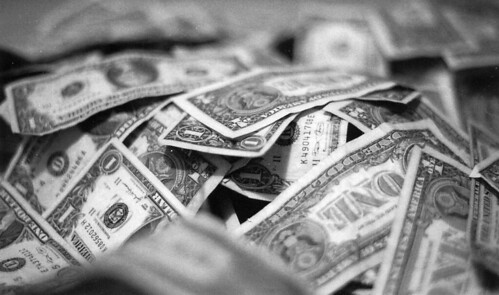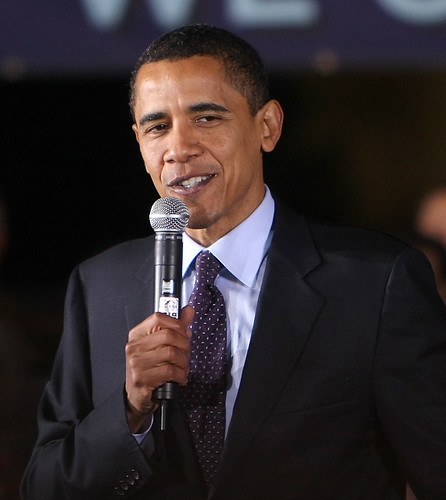 The dollar rebounded slightly Friday morning following a speech by Federal Reserve Chairman Ben Bernanke after falling to its lowest level in 14 weeks a day earlier. It’s lost 11.5 percent of its value in the last six months. Bernanke acknowledged that “we will need to tighten monetary policy to prevent the emergence of an inflation problem down the road,” in an effort to persuade investors that the Fed was prepared to target inflation. Analysts suggested that the dollar would strengthen, with higher interest rates that could attract investments from abroad. Most analysts believe the slide, to about the same level of two years ago, is a result of investors’ increasing acceptance of risk and the prospects of interest rates rising more rapidly outside the United States. Gold, other precious metals, and oil have also been rising as the dollar has plummeted. Several Asian nations have responded to the dollar’s fall by devaluing their own currencies to support their export markets–intervention that has led to tensions between the United States and China in recent weeks. This week the United States began an intensive investigation of Chinese steel exports, following an earlier sharp increase in U.S. tariffs on imports of Chinese tires. The U.S. Treasury is preparing an announcement next week concerning its stand on Chinese manipulation of its currency. Meanwhile, the U.S. trade deficit unexpectedly fell 3.6 percent in August. Despite a 16.3 percent increase the previous month–the sharpest rise in ten years–U.S. trade deficits have been falling substantially as the recession has slowed global trade, especially in oil, industrial manufactures, and other consumer items.
The dollar rebounded slightly Friday morning following a speech by Federal Reserve Chairman Ben Bernanke after falling to its lowest level in 14 weeks a day earlier. It’s lost 11.5 percent of its value in the last six months. Bernanke acknowledged that “we will need to tighten monetary policy to prevent the emergence of an inflation problem down the road,” in an effort to persuade investors that the Fed was prepared to target inflation. Analysts suggested that the dollar would strengthen, with higher interest rates that could attract investments from abroad. Most analysts believe the slide, to about the same level of two years ago, is a result of investors’ increasing acceptance of risk and the prospects of interest rates rising more rapidly outside the United States. Gold, other precious metals, and oil have also been rising as the dollar has plummeted. Several Asian nations have responded to the dollar’s fall by devaluing their own currencies to support their export markets–intervention that has led to tensions between the United States and China in recent weeks. This week the United States began an intensive investigation of Chinese steel exports, following an earlier sharp increase in U.S. tariffs on imports of Chinese tires. The U.S. Treasury is preparing an announcement next week concerning its stand on Chinese manipulation of its currency. Meanwhile, the U.S. trade deficit unexpectedly fell 3.6 percent in August. Despite a 16.3 percent increase the previous month–the sharpest rise in ten years–U.S. trade deficits have been falling substantially as the recession has slowed global trade, especially in oil, industrial manufactures, and other consumer items.
The Nigerian rebel group MEND announced that it would resume its attacks on oil pipelines and installations in the Niger Delta, calling the alleged success of a government amnesty plan for rebel fighters “a glaring untruth.” The Movement for the Emancipation of the Niger Delta (MEND) warned in a statement that “we will fight for our land with the last drop of our blood” once its ceasefire expires on Oct. 15, and that it “considers this next phase of our struggle as the most critical . . . We intend to end 50 years of slavery of the people of the Niger Delta by the Nigerian government, a few individuals and the Western oil companies once and for all.” Lucky Ararile, the federal government’s amnesty program coordinator, affirmed that the government would react appropriately if attacks were carried out, and MEND will not be represented at Friday’s amnesty meeting between militant leaders and Nigerian President Umaru Musa Yar’Adua. So far, more than 8,000 militants are reported to have laid down their arms under the amnesty program, and authorities estimate that number could more than double once all have been officially registered. Meanwhile, prominent human rights group Amnesty International called on Western oil firms to make amends for degrading the environment and disregarding human rights in the Niger Delta. “With the Nigerian federal government, the oil industry is one of the key players that has had a considerable responsibility for at least 50 years in the catastrophic situation in the Niger Delta,” said Francis Perrin, a member of the rights group’s executive bureau, to a press conference in Paris on Friday. “We see a direct link between oil exploitation, the degradation of the environment, and the violation of economic, social, cultural, civic and political rights.”
 Leaders around the world reacted with praise and condemnation to President Barack Obama winning the Nobel Peace Prize, with most publicly praising the decision, but some saying it was premature and undeserved. Not surprisingly, spokesmen for the Taliban and Hamas quickly denounced it, with the Taliban saying they had seen no change in his strategy for peace in Afghanistan, and Hamas calling the award “undeserved.” But unexpectedly, an aide to Iranian president Mahmoud Ahmadinejad reacted positively. “We hope that this gives him the incentive to walk in the path of bringing justice to the world order,” said Ali Akbar Javanfekr, a media aide to Ahmadinejad. “We are not upset and we hope that by receiving this prize he will start taking practical steps to remove injustice in the world.” German chancellor Angela Merkel said President Obama’s goal for a world free of nuclear weapons, one of the issues cited by the Nobel Prize Committee for the award, is something “we must all try to achieve in the coming years.” French president Nicolas Sarkozy said the prize marked “America’s return to the hearts of the world’s peoples.” While some criticized the decision because the president is presiding over two wars, the Nobel committee hailed Obama’s efforts to “strengthen international diplomacy and cooperation between peoples.”
Leaders around the world reacted with praise and condemnation to President Barack Obama winning the Nobel Peace Prize, with most publicly praising the decision, but some saying it was premature and undeserved. Not surprisingly, spokesmen for the Taliban and Hamas quickly denounced it, with the Taliban saying they had seen no change in his strategy for peace in Afghanistan, and Hamas calling the award “undeserved.” But unexpectedly, an aide to Iranian president Mahmoud Ahmadinejad reacted positively. “We hope that this gives him the incentive to walk in the path of bringing justice to the world order,” said Ali Akbar Javanfekr, a media aide to Ahmadinejad. “We are not upset and we hope that by receiving this prize he will start taking practical steps to remove injustice in the world.” German chancellor Angela Merkel said President Obama’s goal for a world free of nuclear weapons, one of the issues cited by the Nobel Prize Committee for the award, is something “we must all try to achieve in the coming years.” French president Nicolas Sarkozy said the prize marked “America’s return to the hearts of the world’s peoples.” While some criticized the decision because the president is presiding over two wars, the Nobel committee hailed Obama’s efforts to “strengthen international diplomacy and cooperation between peoples.”
As the United States withdraws military forces from their nation, Iraqis are finding difficulty sustaining political and economic development. Periodic bombings in recent weeks have become a pattern, following two of the bloodiest truck bombings at Baghdad government ministries on August 19 that killed 95, but the senior U.S. commander, General Raymond Odierno, denied that it represented a systemic security failure, acknowledging only “a clear security lapse.” The U.S. military is in the process of withdrawing 75,000 soldiers by August 2010, paring the number of American military to a residual training and advisory force of 50,000. This pace that could even accelerate if Iraqi elections, scheduled for January, go well. Politically, many Iraqis feel abandoned by the American withdrawal and the councils of local nationalist Iraqis fear that, without U.S. support, they may no longer be safe, much less effective, prompting concern about whether a relatively dramatic increase in security in recent months will be solidified by political reconciliation. Many Iraqis are looking to get back to work, but are still finding jobs hard to find. In the oil sector, international bidding last year proved disappointing as few firms showed much interest in returning to oil production in Iraq. One Chinese company paid $3 billion dollars to established itself in Wasit Province, but imported its own Chinese labor, spurning local Iraqis who offered to work. And beyond oil, Iraqi firms are finding difficulty attracting foreign investment. Security is a serious impediment, but management corruption and the inefficiencies of old, decaying factories and the bureaucracy of a centrally planned economy have deterred further investment.
Iranian monarchist Mohammad-Reza Ali Zamani was sentenced to death for his participation in protests following this summer’s elections. According to semi-official Iranian news agency Mehr, Zamani was part of a group that sought to restore Iran’s monarchy, and was accused of fighting against the Islamic establishment and active membership of a “terrorist” royalist association, among other crimes. The conviction, which was first reported by the reformist Web site Mowjcamp, is the first death sentence in the trials of more than 100 opposition supporters accused of fomenting street violence after Mahmoud Ahmadinejad won Iran’s disputed presidential elections in June. But human rights groups have denounced the proceedings as “show trials” meant only to intimidate the populace.